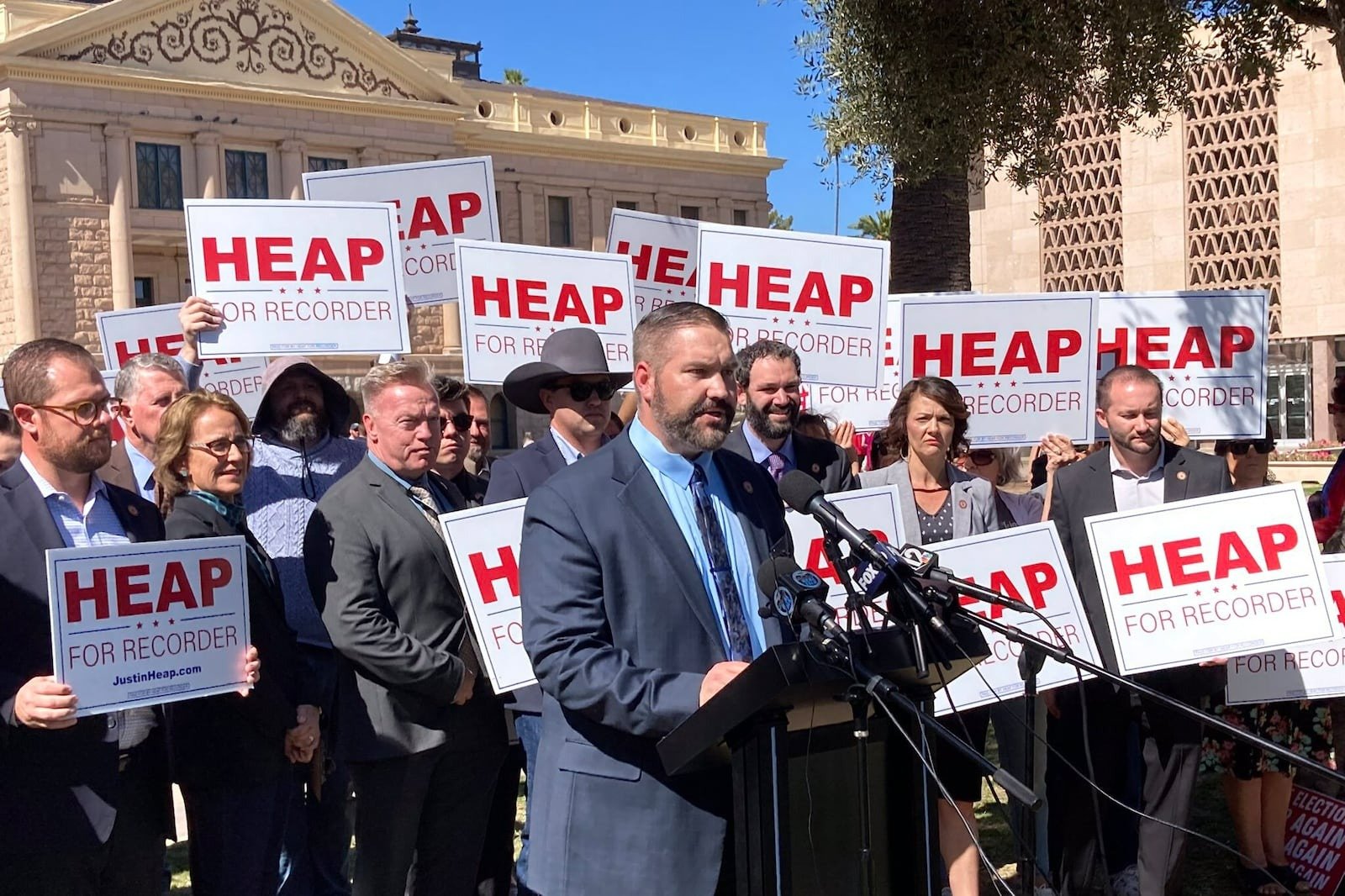2024 election
Arizona GOP Candidates for County Recorder Fuel Election Doubts in Their Campaigns

Arizona’s election landscape is facing significant strain as Republican candidates for county recorder positions amplify unfounded claims of election fraud alongside legitimate concerns about administrative errors in past elections. This approach raises alarms among voters regarding the implications of entrusting election oversight to those who promote such distrust.
The race drawing the most attention is in Maricopa County, where Republican state Rep. Justin Heap challenges Democrat Tim Stringham in a campaign focused on “securing our elections.” Heap’s victory in the August primary against incumbent Republican Stephen Richer was fueled by his assertion that Richer oversaw “the worst election in history” during the 2022 midterm elections.
This year’s county recorder races represent a marked shift in political dynamics compared to four years ago. The role, once largely overlooked, now impacts how voting is administered, including the management of early voting locations and ballot drop-off boxes. The post became controversial in 2020 amidst a flurry of false claims about election integrity and some administrative missteps.
Heap is not alone; Republican candidates echoing similar sentiments are running in various counties, including Coconino, Navajo, Pinal, and Yuma. In Cochise County, sitting Recorder David Stevens aims to retain his position amidst the ongoing skepticism about election integrity.
Secretary of State Adrian Fontes emphasizes the critical nature of these races, framing them as a contest between reality and misinformation. He publicly endorsed Stringham, presenting the choice as between “an honorable military veteran or an election denier.” Fontes insists that these elections are about factual integrity rather than partisan politics.
Recorders significantly influence voting decisions. They oversee the cleaning of voter rolls and the logistical aspects of elections. Despite their pivotal role, in many counties, county supervisors maintain oversight on election day protocols and ballot tallying.
However, Pinal County presents a unique situation where Recorder Dana Lewis has assumed control of the election department, leading to contentious disputes within the county’s political landscape. In an unusual turn, Supervisor Kevin Cavanaugh is now running as a write-in candidate against Lewis after his allegations of election irregularities failed to gain traction.
The county recorder’s position has witnessed a turnover spurred by harassment and stress related to the heightened scrutiny on election practices. In light of the increased public focus, candidates with more political experience are stepping forward. For instance, in Yuma County, Republican David Lara, a school board member and a primary election winner, targets illegal ballot harvesting, leveraging his past experience with gathering evidence against ballot manipulation.
Heap, in his campaign, has criticized Richer for Election Day issues in 2022, asserting a commitment to resolving these problems if elected. He has vocalized a desire for election results to be available immediately on election night, although it is unclear how much direct control he would have over these processes as recorder.
Heap’s claims about voter rolls have also drawn scrutiny. He alleged that numerous voters receive mail ballots intended for individuals no longer residing at their addresses. Stringham counters that while the recorder’s office does determine its own budget and staffing, the workflow is constrained by state laws governing voter roll management. As such, significant removals can only occur through defined legal channels.
In Yuma County, Lara continues to press the notion of escalating ballot harvesting claims without sufficient evidence. He intends to implement stringent signature verification for mail-in ballots. His approach has been characterized by some as voter intimidation, particularly in light of potential discriminatory outcomes against specific demographic groups.
Several other counties have candidates alleging inadequate voter roll updates and echoing national sentiments about noncitizen voting, despite presenting no tangible evidence. In Coconino County, Republican Bob Thorpe seems to misunderstand the actual inactivation policies, leading to allegations of improper voter database management.
In conclusion, candidates across Arizona are utilizing themes of election integrity, but their approaches diverge significantly. This election cycle is pivotal, as county recorder races could reshape the future of Arizona’s electoral processes amid high public scrutiny.
















